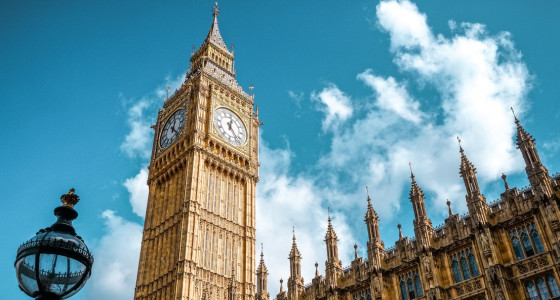
It’s been a tough few years for the UK economy. Living costs are rising, disruption continues as a result of the pandemic, and now there’s a war raging in Europe. So all eyes were on Westminster today as the Chancellor, Rishi Sunak, announced an especially important Spring Budget that many hoped would help ease household finances.
We’d hoped for some announcements directly aimed at assisting the many pension savers and retirees currently feeling the squeeze, but this year’s Budget turned out to be light on pensions. However, there were announcements that could indirectly affect your pension.
Here’s what was (and wasn’t) covered during the 23 March Spring Budget announcement, and what it could mean for your pension.
The National Insurance income threshold will rise
The income threshold where you’ll start to pay National Insurance is set to rise from £9,568 to £12,570 this spring, which Rishi Sunak says will result in 30 million people paying less tax. However, some of this saving will be cancelled out by the confirmed 1.25% rise in the rate of National Insurance.
While raising the threshold will help some of the lowest earners, it won’t help the majority. We think the rise in National Insurance is poorly timed and will hit people at the least opportune moment. The threshold rise doesn’t go far enough to help ordinary people who will be feeling the squeeze.
What it means for your pension…
We’ve calculated that this approximately £300 a year saving could enable you to top up your pension contributions by an extra £25 a month. Over time, an additional monthly contribution of this magnitude could help put another £15,000 in your pension.
Income tax will fall (in 2024)
Although it won’t help you now, The Chancellor said that the government would reduce the rate of income tax from 20% to 19% - the first fall in 16 years.
What it means for your pension…
For every £10,000 you earn, the 1% cut to income tax could leave you £100 better off each year. It’s a small saving, but if you earned £30,000 you could put away another £25 a month into your pension.
What wasn’t covered
The State Pension is rising with the rate of inflation. But it’s based on last year’s inflation figures. So this April, it’s rising by just 3.1% - while the Office for Budget Responsibility expects inflation to peak at 8.7% by the end of 2022. We think this shortfall should have been addressed to limit the impact of higher living costs and prevent the real problem of pension poverty in the UK.
There were rumours that tax relief on pension contributions could be lowered or scrapped altogether. Thankfully, this didn’t end up in the Spring Budget. Pension tax relief is a vital incentive that encourages people to save efficiently towards their retirement - boosting pension personal contributions by 25% - and we’re pleased it’s been left untouched.
We’d also have liked to see tax relief on pension contributions shifted to a flat rate. The tax relief system we have today is complicated and results in too many people continuing to miss out on this crucial benefit as they aren’t aware that the government offers tax benefits for saving into a pension. We think The Chancellor could have delivered a clear and simple message when it comes to pension saving by offering a flat rate of tax relief, leaving behind an incredibly costly and complicated system, in favour of one that truly rewards everyone for putting money away for their retirement.
**The Pension Lifetime Allowance remains frozen at £1,073,100 for another four years, meaning up to two million savers will pay a 55% tax charge. While there are already sensible limits on how much an individual can pay into their pension each year, the current Lifetime Allowance limit punishes those who have saved diligently throughout their working life and contradicts the government’s message that everyone should be saving for retirement. We’d have liked to have seen this increase.
The minimum age of Auto-Enrolment remained untouched at 22. We’d hoped this might be lowered to 18 years of age to encourage as many people as possible to begin putting money away for their future, due to the benefits of compounding returns.
In summary
Changes to the National Insurance rate and threshold could see someone on a £30,000 salary put away an extra £50 a month into their pension.That’s welcome news. But we think The Chancellor left plenty of options on the table that could have really made a positive impact on people’s pension savings during such a challenging time for household finances.
To learn more about how to boost your pension, read our article: How to make the most of your pension
Risk warning As always with investments, your capital is at risk. The value of your investment can go down as well as up, and you may get back less than you invest. This information should not be regarded as financial advice.




